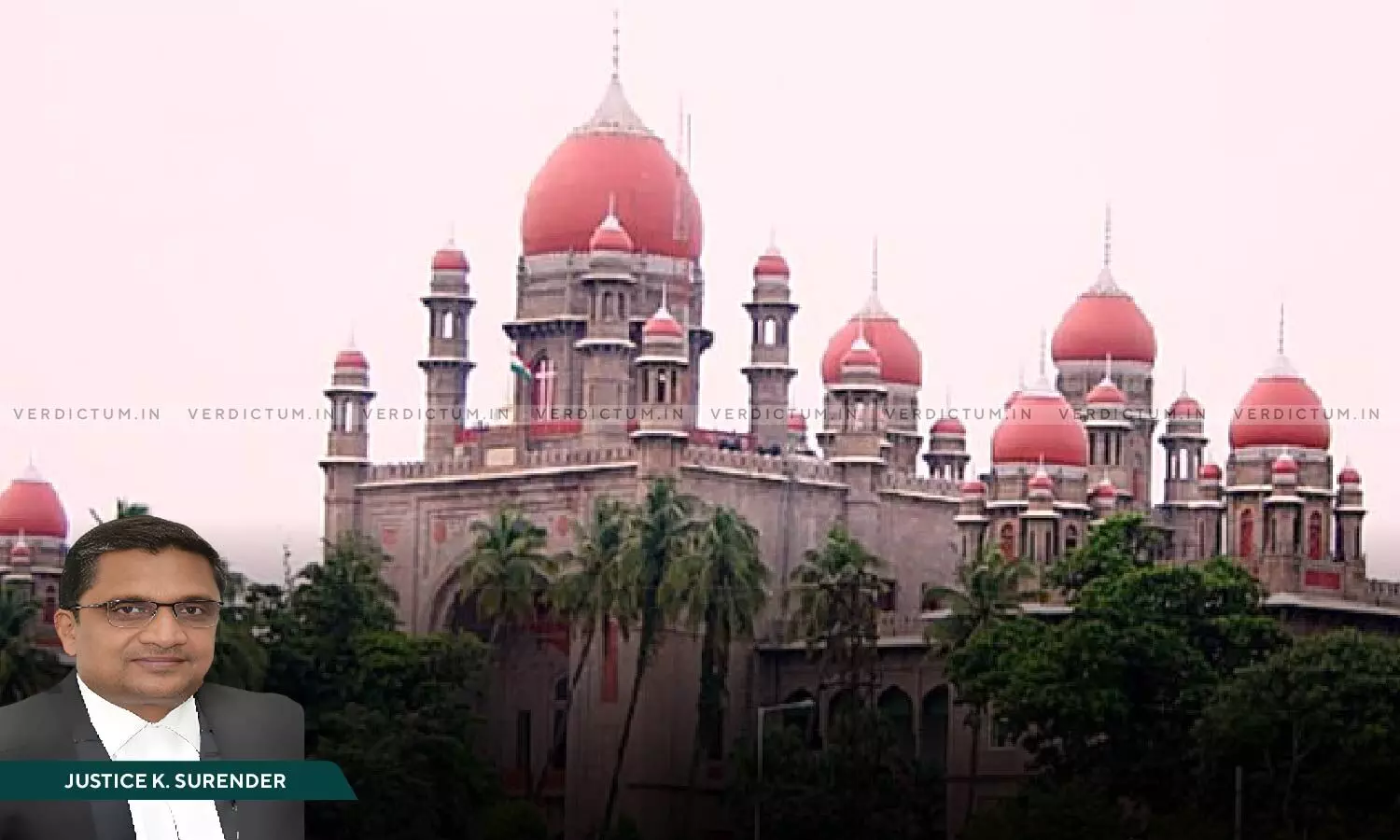
Upma, Wheat Grass, Super Fiber, Tea Tox And Super Juice Will Not Fall Within Definition Of 'Drug' Under Drugs And Magic Remedies Act: Telangana High Court
 |
|The Telangana High Court has held that the food items such as Upma, Wheat Grass, Super Fiber, Tea Tox, and Super Juice will not fall within the definition of Drug under the Drugs and Magic Remedies (Objections Advertisement) Act, 1954.
The Court was deciding a batch of writ petitions challenging proceedings before the Additional Chief Metropolitan Magistrate under the said law.
A Single Bench of Justice K. Surender observed, “It is not mentioned on the label that the item sold is any kind of drug which would treat any disease. Admittedly, the products are Upma, wheat grass, super fiber, tea tox and super juice. The said food items will not fall within the definition of drug. A perusal of the labels does not in any manner make any false claim of treating any disease as a drug. However, a mention is made that the food items are beneficial for health and ailments. It claims that the food items would increase metabolic rate and beneficial for the persons suffering from diabetes, high cholesterol and also would result in loss of weight.”
The Bench said that under the Food Safety and Standards Act, 2006, the Food Safety Officer shall be responsible for inspection of food business, drawing samples and sending them to Food Analyst for analysis and after following the procedure, prosecution can be launched at the instance of Commissioner of Food Safety.
Advocates Chandala Devi and M. Abhinay Reddy appeared for the petitioners while Government Pleader appeared for the respondents.
Facts of the Case -
A case was filed under Sections 3(d) and Section 7, read with Serial No.9, 26 and 47 in schedule appended to Drugs and Magic Remedies (Objections Advertisement) Act, 1954 (for short ‘the Act’). According to the 2nd respondent/Drug Inspector, on credible information, the Drug Inspector along with other personnel inspected the premises of True Weight Wellness Private Limited and found certain products for marketing and distribution. Five products were identified which were labelled in contravention of provisions of Drugs & Magic Remedies (Objectionable Advertisements) Act, 1954.
In all the products i.e., ‘Three grain Upma’, ‘True weight wheat grass’, ‘True weight super fiber’, ‘True weight tea tox’, and ‘True weight super juice’, the words used were found to be misleading in nature and would influence the patient for self-medication. According to the Drug Inspector, the claims made by the manufacturer were in violation of the provisions of the Act of 1954, punishable under Section 7 of the Act. All the labels of the products seized were filed before the Court.
The High Court in the above context said, “As seen from the labels, it is no where claimed on the label that it is a ‘medicine’ or a ‘drug’ for treatment or in any manner would cure any disease. In fact, the products are certified by fssai (Food Safety and Standards Authority of India). Food Safety and Standards Authority of India is an authority to provide FSSAI license to every food business and made compulsory to have a food license before initiating the business. FSSAI license serves as a certification that food business complies with food safety regulations set by FSSAI.”
The Court noted that all food business operators including pharmacies or medical stores selling Health supplements or Nutraceutical products need to apply for the FSSAI license or registration.
“The provisions of the Magic Remedies Act would apply if the article or the substance sought to be sold, falls within the definition of drug, but will not include any food item, which is apparent from Section 2(b)(iii) of the Act. … The label, as already stated does not advertise or relate to any cures of diseases. The Act is intended to prohibit any claims of magic remedies, for which reason, restrictions are put on the advertisement.”, said the Court.
The Court further observed that in view of the finding that the product sold does not fall within the definition of drug and was sold as a food item certified by FSSAI, the provisions of the Magic Remedies Act of 1954 do not apply and that the prosecution, if any can be launched by the Food inspector, since the products were sold as ‘food’.
Accordingly, the High Court allowed the writ petition and quashed the proceedings against the petitioners.
Cause Title- Megha More v. The State of Telangana